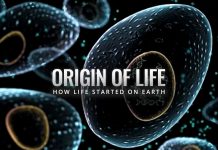As science and technology continue to advance, so does the availability of genetic testing. Companies are now offering to test your DNA and assess your risk of various illnesses, but is this information accurate? Meanwhile, researchers at Harvard have launched the Personal Genome Project, which aims to make DNA sequences and personal information public on the internet to improve medical research. But what are the potential risks of making such data available? Additionally, algae is emerging as a promising source of biofuel that could overcome many of the limitations of traditional methods.
As genetic testing becomes more accessible, people are increasingly interested in understanding their risk of certain diseases based on their DNA. However, the accuracy and usefulness of such tests are still being debated by medical professionals. Some tests may only assess a small portion of a person’s genetic makeup, while others may not take into account environmental factors that can contribute to disease risk. Moreover, interpreting the results of genetic testing can be complex and may require the assistance of a genetic counselor.
On the other hand, the Personal Genome Project is taking a different approach to using genetic information. By making large amounts of genetic and personal data public, researchers hope to gain a better understanding of how genetic variations contribute to disease and other traits. However, this raises privacy concerns as the data could potentially be accessed by third parties or used for nefarious purposes. Additionally, there are concerns about how accurately such data can be de-identified to protect participants’ privacy.
Moving beyond genetics, algae is a promising source of biofuel that could revolutionize the industry. Unlike traditional biofuels such as corn ethanol, algae can be grown on non-arable land and does not require freshwater. It also does not rely on foodstuffs, so it would not compete with food production. Moreover, algae can be “tuned” to produce hydrogen, which could have a range of applications beyond biofuels. However, there are still challenges to overcome, such as scaling up production and developing cost-effective methods for harvesting and processing the algae.
In conclusion, genetic testing and public genomes have the potential to revolutionize medical research, but there are still many ethical and privacy concerns to consider. Meanwhile, algae is emerging as a promising source of biofuel that could overcome many of the limitations of traditional methods. While there are still challenges to overcome, the future looks bright for algae as a sustainable and versatile source of energy.

































